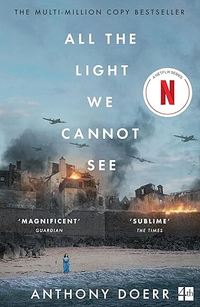Is All The Light We Cannot See based on a true story?
Let's take a look and see
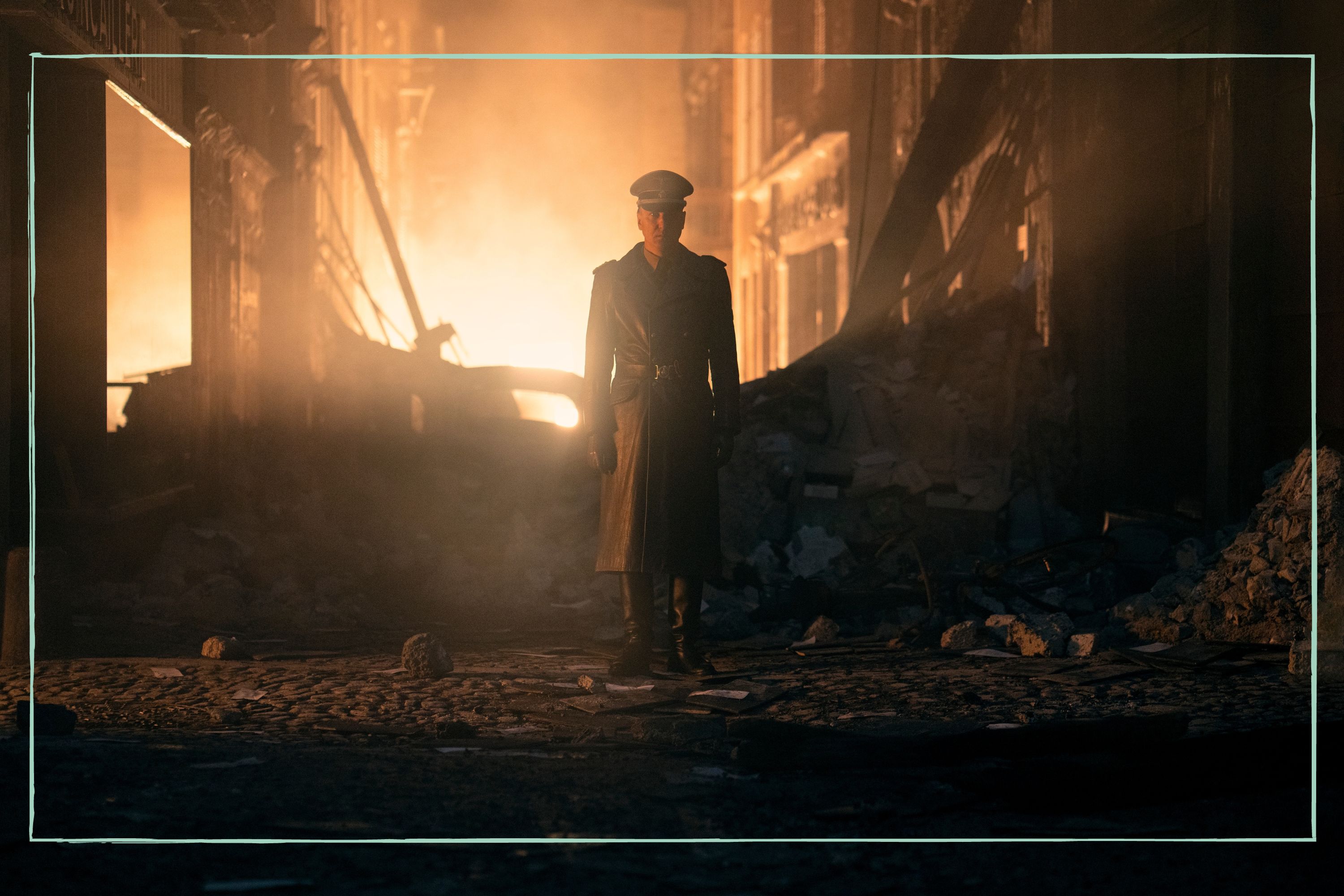

Is All The Light We Cannot See based on a true story? Set during the second World War, viewers have been asking if there's truth to the tale.
In All The Light We Cannot See, blind French teenage girl Marie-Laure LeBlanc, and German orphan Werner Pfennig, find their lives unexpectedly entwined. Marie-Laure and her father escape German-occupied Paris with a Gestapo officer in hot pursuit, who believes they have stolen a special diamond. Meanwhile, having grown up in an orphanage, Werner is recruited by the Nazis due to his skill at mending radios. In the Stephen Knight developed series, his path crosses with Marie-Laure's thanks to their shared passion for a certain professor they both enjoy listening to on the radio - it's definitely a series to add to your what to watch in November list.
With the story being based during World War ll some people have asked whether it's based on a true story - as well as wondering where All the Light We Cannot See was filmed. Viewers have also asked what Channel 4's The Couple Next Door is based on following some confusion, and what ITV's Platform 7 is based on - it's an all too familiar narrative for some. Now, lets delve into whether there's any truth to All The Light We Cannot See.
For more TV recommendations, read our review of The Buccaneers.
Is All The Light We Cannot See based on a true story?
All The Light We Cannot See isn't based on a true story, but on the fictional, Pulitzer Prize winning novel of the same name by Anthony Doerr.
Speaking to NPR about the original inspiration behind the story, Doerr recalled a train journey he took in 2004, which planted the first seed of the plot into his head. He said "I was on a train heading into Penn Station from Princeton, N.J., and we started going underground. The man in front of me was on his cellphone call - this was in 2004 - and the call dropped. And he got kind of angry, a little embarrassingly angry, unreasonably angry."
He continued "And I just remember thinking, what he's forgetting - really what we're all forgetting all the time - is that this is a miracle. He's using this little receiver and transmitter, this little radio in his pocket, to send messages at the speed of light rebounding between towers to somebody maybe thousands of miles away. He might have been talking to someone in Madagascar for all I knew. For me, that's a miracle."
GoodtoKnow Newsletter
Parenting advice, hot topics, best buys and family finance tips delivered straight to your inbox.
He concluded "So... originally, the real central motivation for the book was to try and conjure up a time when hearing the voice of a stranger in your home was a miracle."
With the bare bones of the story then in his head, Doerr needed to decide where to set the novel. A year later and on a book tour in France, he took some time to explore Saint-Malo. He later told his editor how taken he'd been with the beautiful old buildings, and was surprised to be told the entire city had nearly been wiped out by American bombs in 1944.
The author found himself unsettled by the fact that such an act of violence could be so easily forgotten, in rebuilding the city to its former glory - he felt "foolish" for not even noticing he was marvelling at a largely unoriginal place. Contemplating how many untold stories there must still be to come from the D-Day story, he found his setting for All The Light We Cannot See, and began adding to the plot.
All the Light We Cannot See by Anthony Doerr £5.50 | Amazon
Read the book that inspired a major Netflix series starring Louis Hofmann, Lars Eidinger, Hugh Laurie, Mark Ruffalo, and introducing Aria Mia Loberti. Winner of the 2015 Pulitzer Prize for fiction, and New York Times Bestseller.
Does All The Light We Cannot See have a happy ending?
For those who have read the book, the ending of the TV series is said to be true to the novel, although not a happy one.
Speaking to Entertainment Weekly, director Shawn Levy discussed the ending of the book in comparison to the series, and the slight changes made. He said "Though it is far from a happy ending, I wanted to end with a promise of hope, and there were some bleak, deeply upsetting scenes late in the book that we didn't include in the show."
He added that these small changes had been discussed with Anthony Doerr, adding "Anthony has turned out to be so happy with the show that he has agreed with that decision. So, things that might've made sense to the novelist a decade ago when he was working on this, might not make sense on screen, on Netflix, for a global, mainstream audience in 2023."
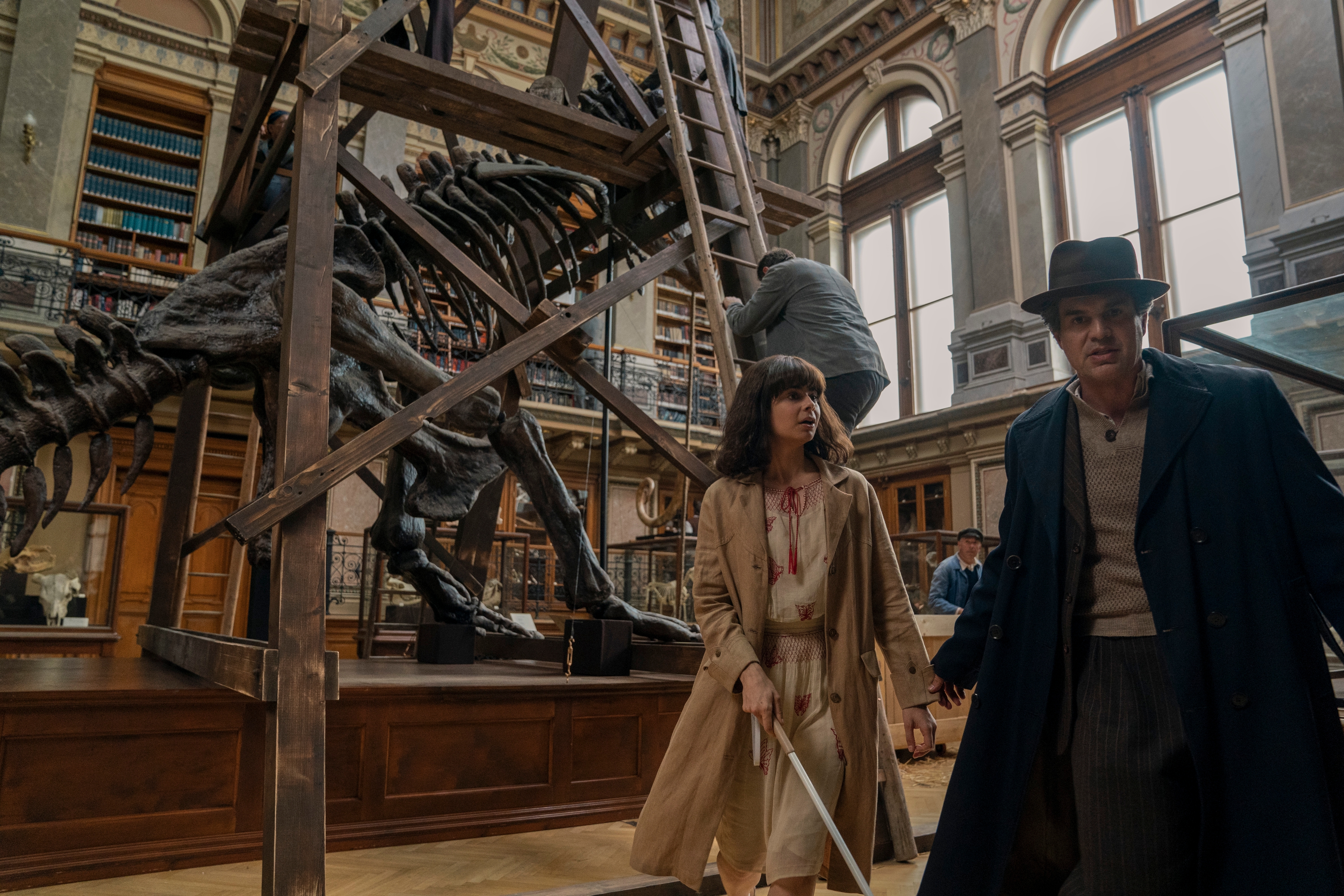
All The Light We Cannot See: Cast
- Aria Mia Loberti as Marie-Laure LeBlanc
- Nell Sutton as young Marie-Laure LeBlanc
- Louis Hofmann (Land of Mine, Dark) as Werner Pfennig
- Lucas Herzog as young Werner Pfennig
- Mark Ruffalo (Spotlight, I Know This Much Is True) as Daniel LeBlanc
- Hugh Laurie (Veep, House) as Etienne LeBlanc
- Lars Eidinger (Sense8, Irma Vep) as Reinhold von Rumpel
- Marion Bailey (This Is Going To Hurt, The Crown) as Madame Manec
- Luna Wedler (The Team, Biohackers) as Jutta Pfennig
- Ed Skrein (Deadpool, Game of Thrones) as Herr Siedler
- Corin Silva (SAS: Rogue Heroes, Punch-Drunk) as Frank Volkheimer
- Milo Quinton (The Devil's Hour, Little Crackers) as Frederick
- Felix Kammerer (All Quiet On The Western Front) as Schmidt
- Andrea Deck (The Crown, Homeland) as Sandrina
- Richard Sammel (The Strain, Spencer) as Dr. Hauptman
- Rosie Hilal (No Return, London Road) as Frau Elena
- Bernd Hölscher (The Captain, A Hidden Life) as Bastian
Viewers will be interested to know that Aria Mia Loberti, who has the leading role of Marie-Laure, is not a trained actress and has never appeared on camera before. Legally blind due to a severe form of achromatopsia, Loberti was an academic studying for a PhD student at Penn State University in rhetoric, when she heard about an open audition for the role of Marie-Laure.
Having previously gained a masters from the Royal Holloway in London, Loberti sent an audition tape armed only with a childhood love of performing for her family, and being a huge fan of the novel the series is based on. When Shawn Levy called to let her know the role was hers, she instantly thought it was a rejection call.
Speaking to Vanity Fair, Loberti said "I had this whole speech prepared that was thanking him for the time, hoping that he would still consider hiring a blind actress and maybe asking like, how can I get involved in local theater?" When informed the role was hers, she added "And then I just remember shaking so badly. I don’t really remember much after that. I think I made cookies and ate like, two dozen by myself that afternoon - it was a lot."
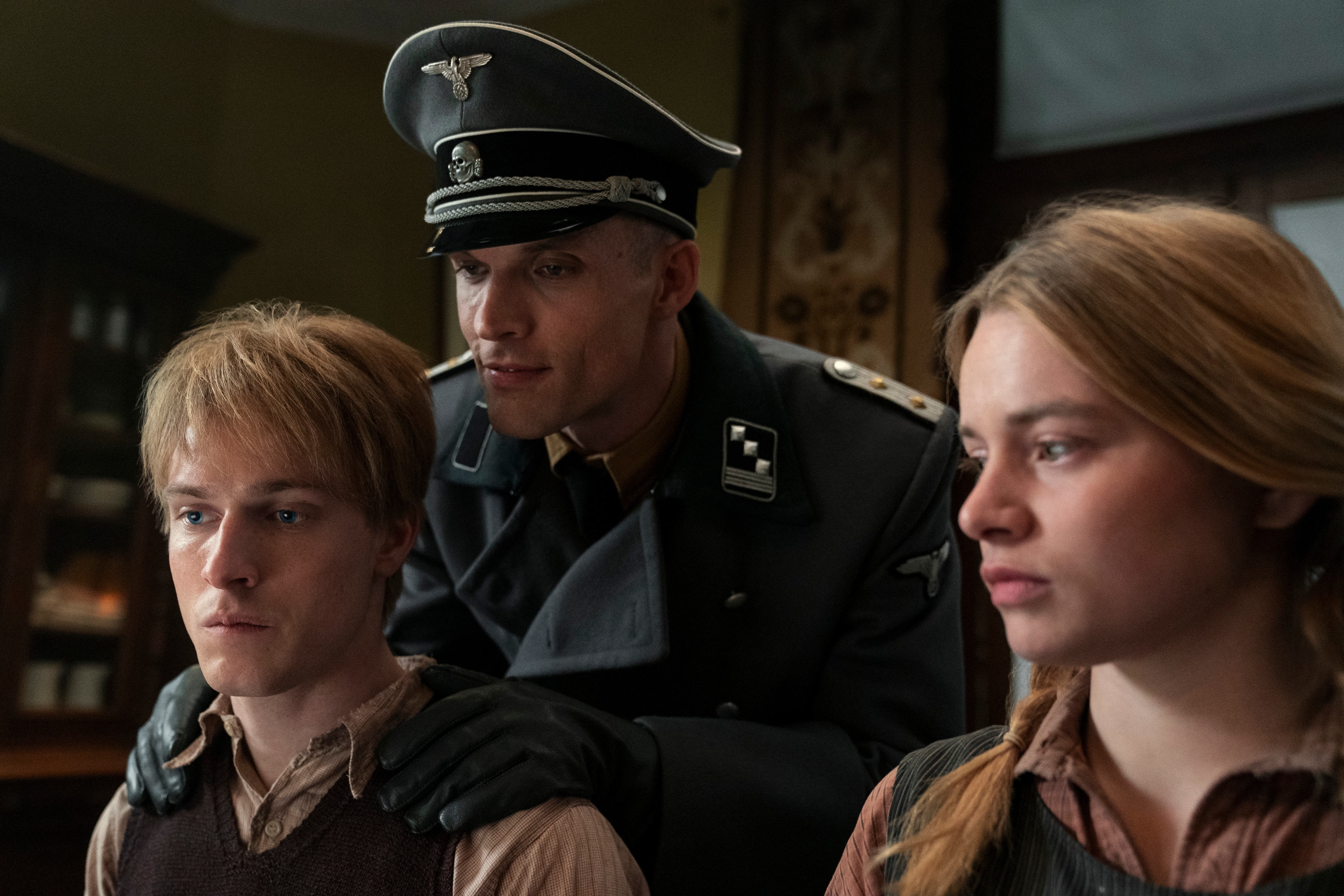
All The Light We Cannot See: Reviews
Early critical reviews of All The Light We Cannot See are not entirely promising. However, there are often big discrepancies in how critics and audiences view a series, and audiences tuning in to the four episodes might disagree.
Lucy Mangan from the Guardian offered two stars, suggesting "This terrible mess is a one-way ticket to Triteland." Her opinion is "Peaky Blinders creator Steven Knight has adapted the hit Second World War novel with all the subtlety of ’Allo, ’Allo! Prepare for twee acting, a woeful script and accents that get vurse and vurse."
Nick Hilton from the Independent also offered two stars. He said "The show could be forgiven some shonkiness and self-indulgence if the central chemistry between Marie and Werner was coherent. What’s left is a cartoonish portrait of a Nazi in pursuit of a blind girl’s diamond, which does little credit to the sheer scale of suffering endured in both our recent history and the contemporary moment."
Alison Herman from Variety agreed, suggesting "At four hours, All the Light We Cannot See is just barely longer than the feature film it nearly became when producer Scott Rudin first optioned the rights. A more extended story may have enriched its protagonists beyond figureheads for innocence, integrity or loving parenthood. In its current form, All the Light We Cannot See calls on viewers to acknowledge the complex humanity of others while failing to depict much itself."
To find out if erotic thriller Burning Betrayal is based on a true story, and what courtroom drama The Burial is based on, we've got you covered. Viewers asking what My Life with the Walter Boys is based on, have been inspired by the show's origins.

Lucy is a mum-of-two, multi-award nominated writer and blogger with six years’ of experience writing about parenting, family life, and TV. Lucy has contributed content to PopSugar and moms.com. In the last three years, she has transformed her passion for streaming countless hours of television into specialising in entertainment writing. There is now nothing she loves more than watching the best shows on television and sharing why you - and your kids - should watch them.
-
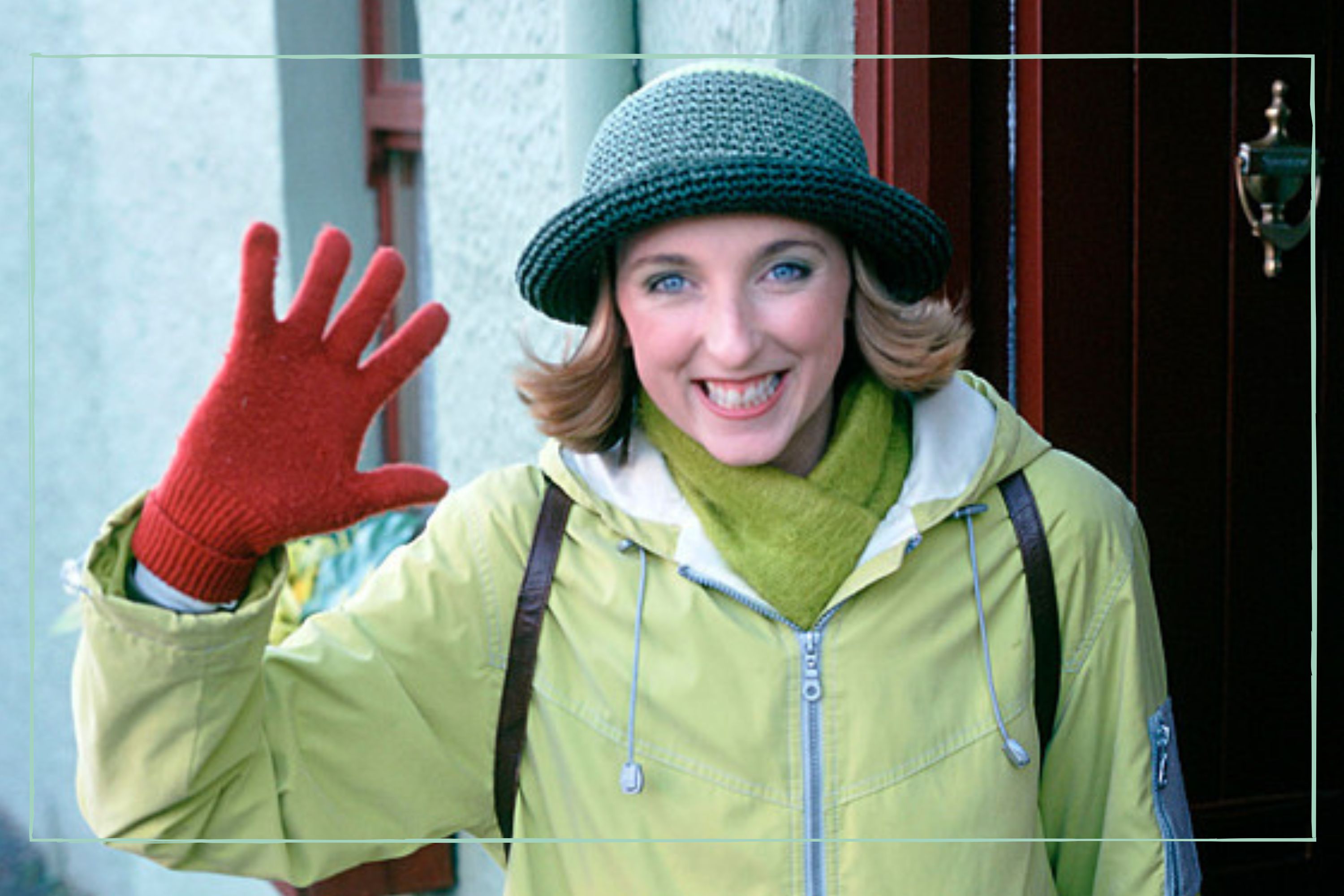 Balamory is back after two decades - why we can’t wait for the reboot of the iconic BBC series
Balamory is back after two decades - why we can’t wait for the reboot of the iconic BBC seriesWhat's the story in Balamory? Now you can find out, as the BBC announces the return of the beloved children's series nearly 20 years after the final episode aired.
By Lucy Wigley
-
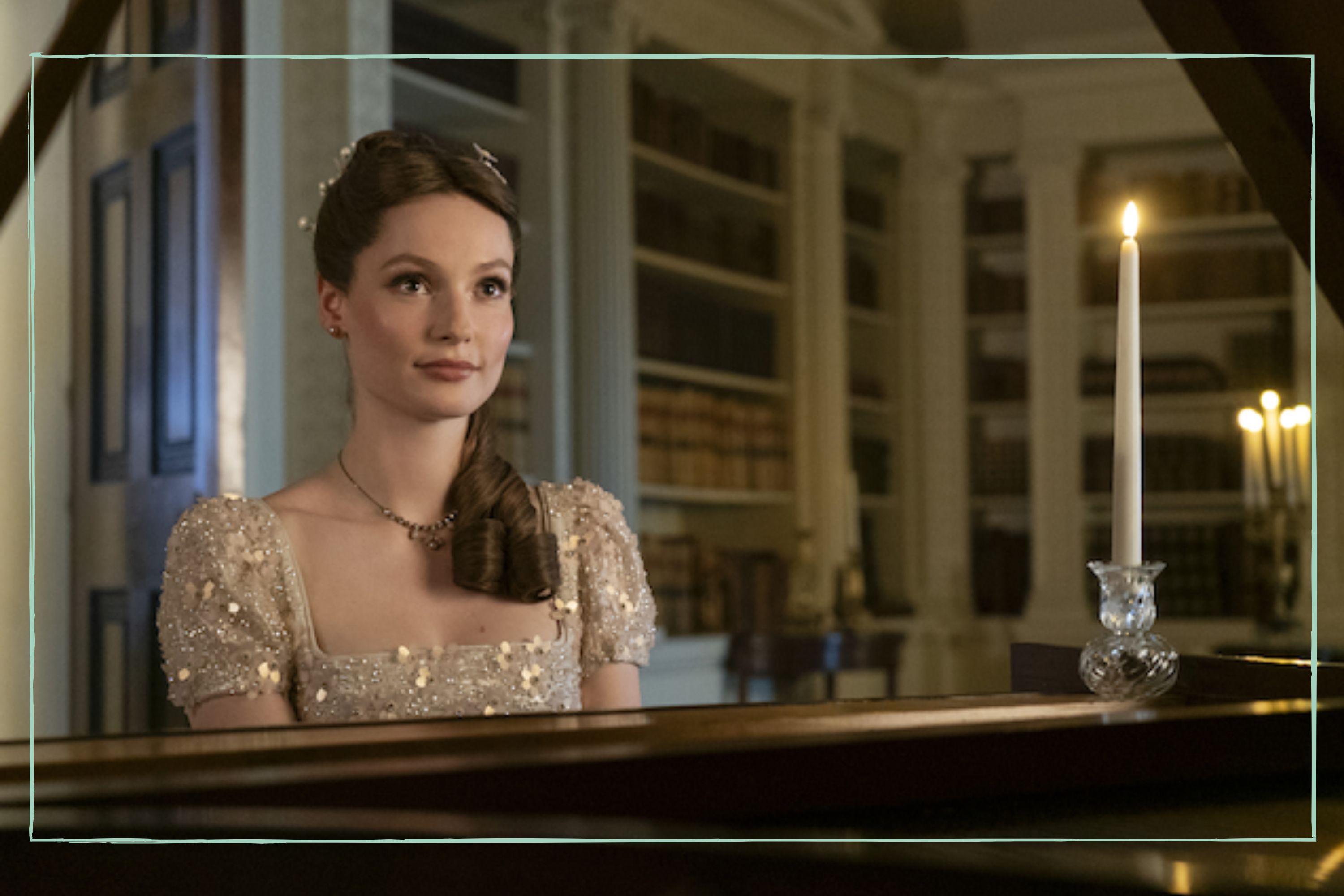 Is Francesca in Bridgerton gay? With more great representation in the show, this expert shares how to start the conversation around sexuality with your teen if they’re watching
Is Francesca in Bridgerton gay? With more great representation in the show, this expert shares how to start the conversation around sexuality with your teen if they’re watchingIs Francesca in Bridgerton gay? It's a question many have asked, and you might need to have conversations around sexuality with your teen if they’re watching.
By Lucy Wigley
-
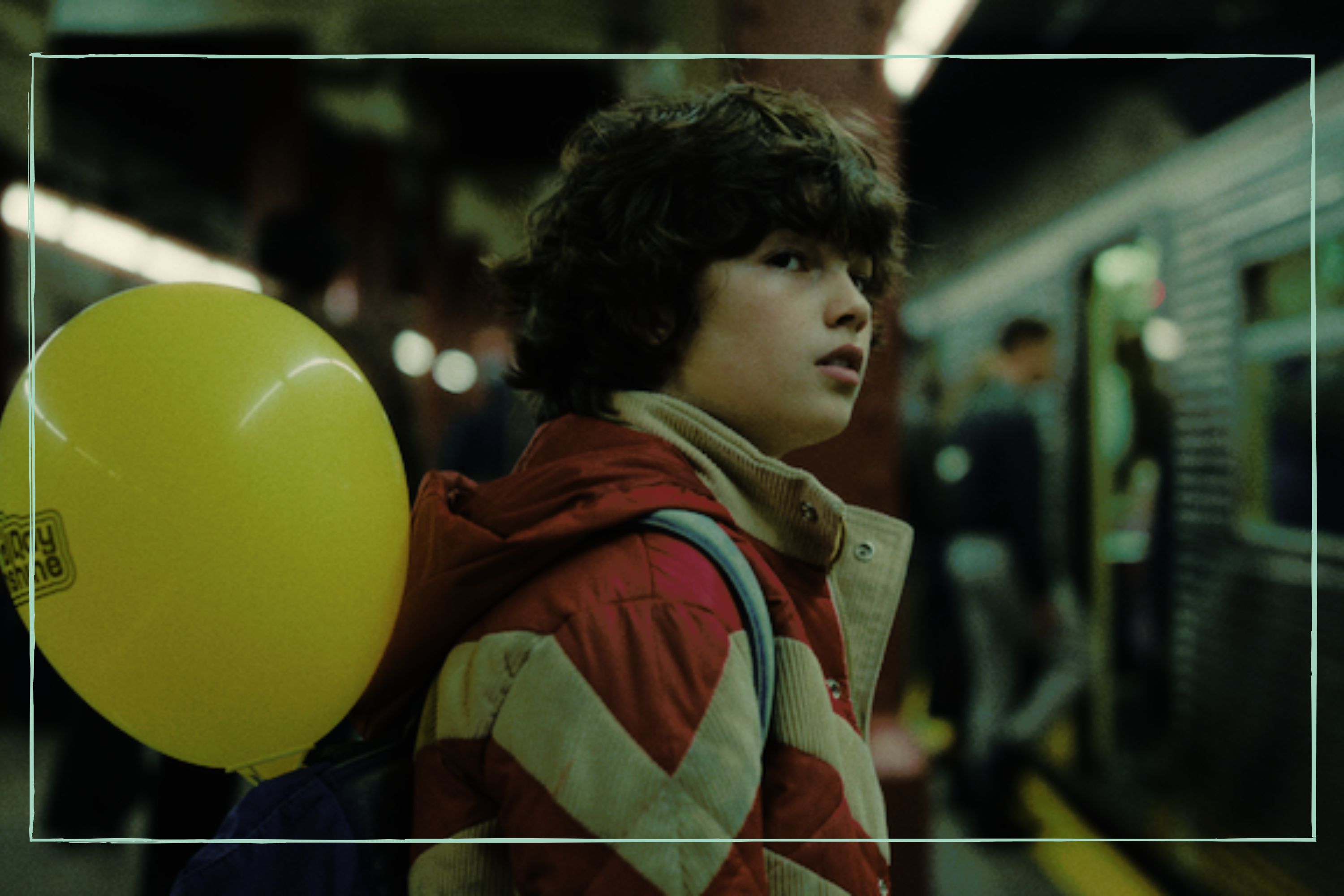 Is Eric a true story? Benedict Cumberbatch lives every parent’s worst nightmare in new Netflix show
Is Eric a true story? Benedict Cumberbatch lives every parent’s worst nightmare in new Netflix showIs Eric a true story? Every parent’s worst nightmare plays out in Netflix's latest show, against a backdrop of 80s New York grappling with AIDS and racism.
By Lucy Wigley
-
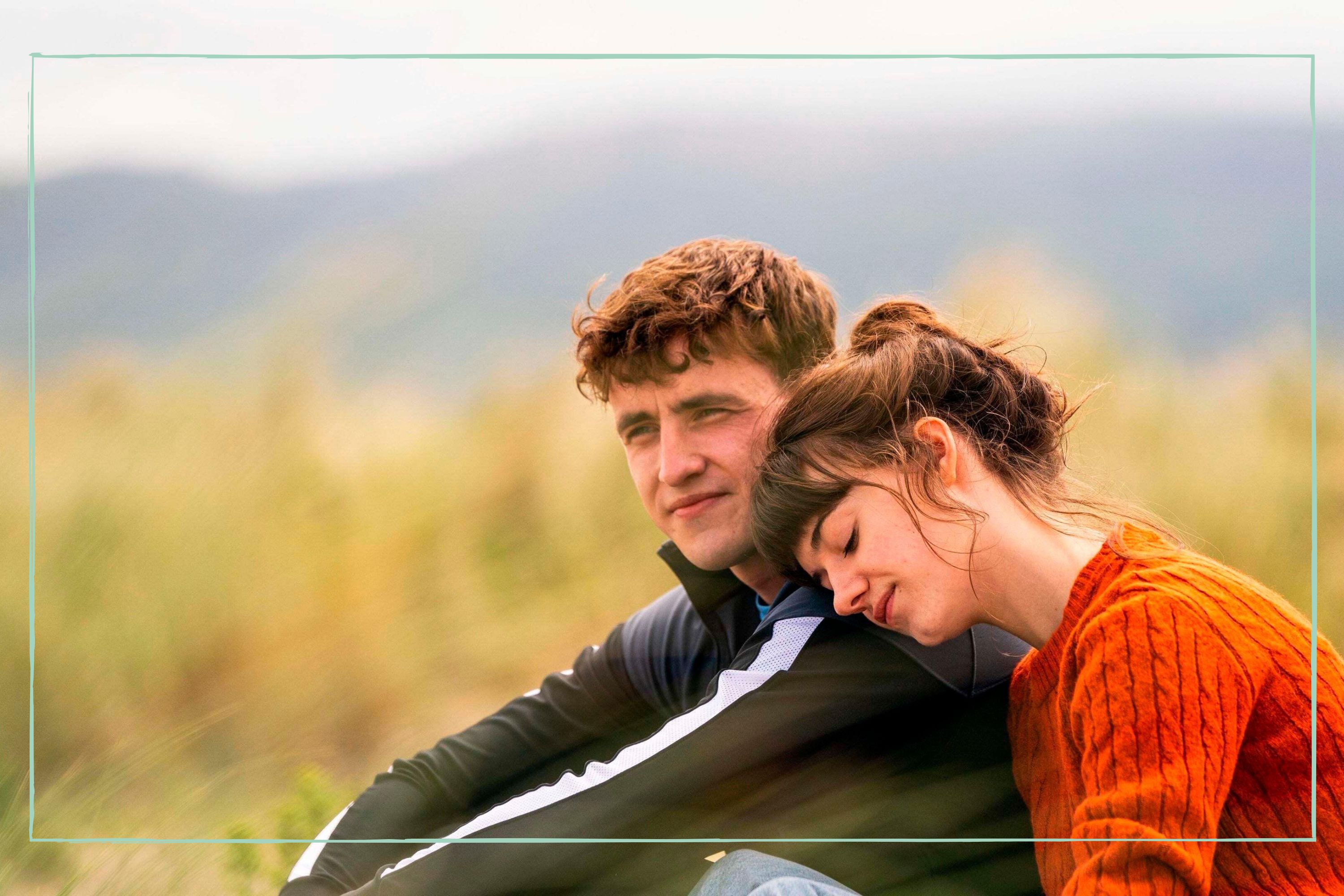 Normal People season 2 rumours are circulating, and we have our own Marianne and Connell 'first love' stories to share
Normal People season 2 rumours are circulating, and we have our own Marianne and Connell 'first love' stories to shareNormal People season 2 rumours are flying around, and we have our own Marianne and Connell moments to share - because everyone remembers their first heartbreak.
By Lucy Wigley
-
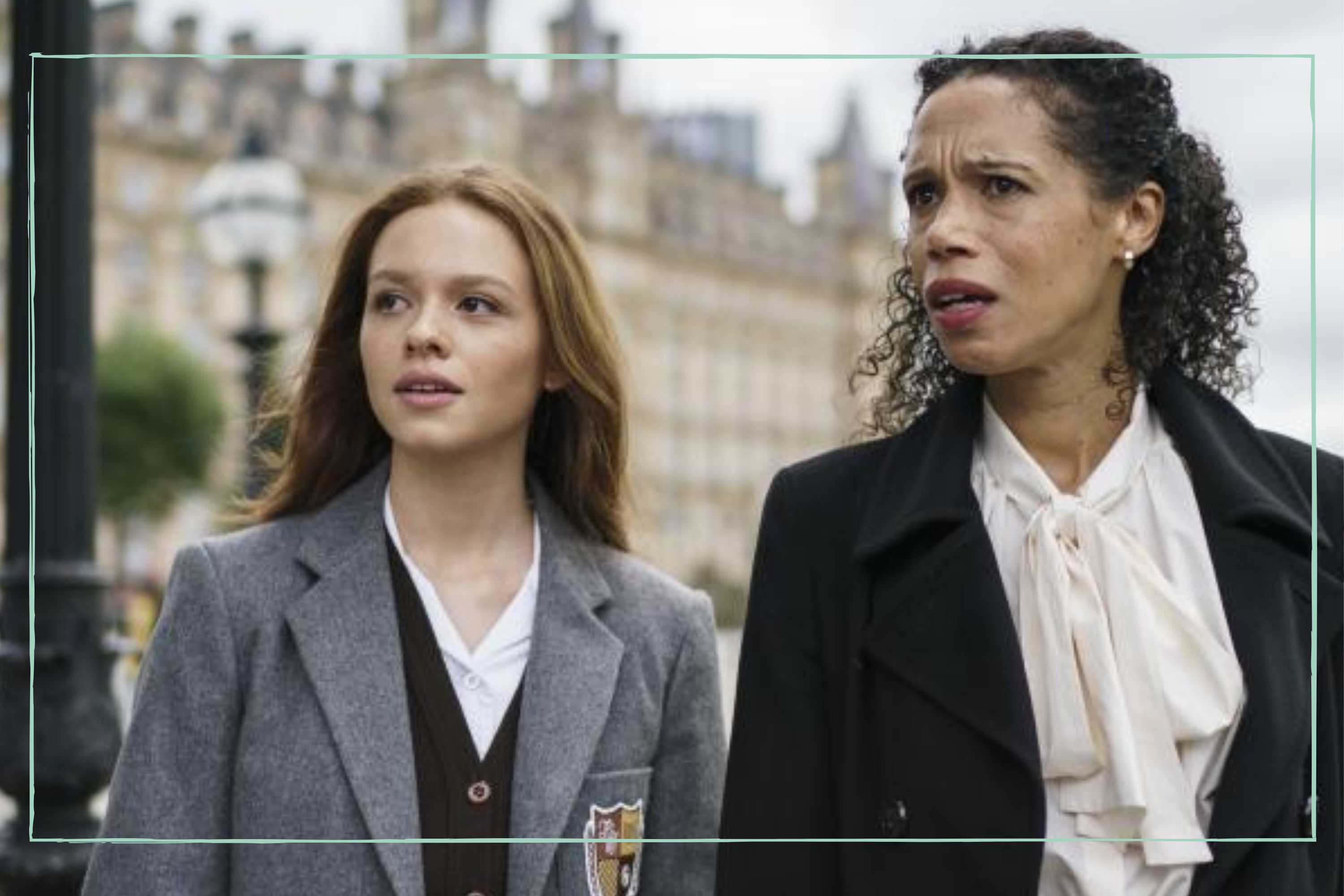 Channel 4 drama The Gathering explores 'toxic teenagers and their even more toxic parents' in an online world dominated by social media
Channel 4 drama The Gathering explores 'toxic teenagers and their even more toxic parents' in an online world dominated by social mediaNew Channel 4 drama explores the challenges of impossible standards set by social media, and how parents themselves become toxic in their need to protect their kids.
By Lucy Wigley
-
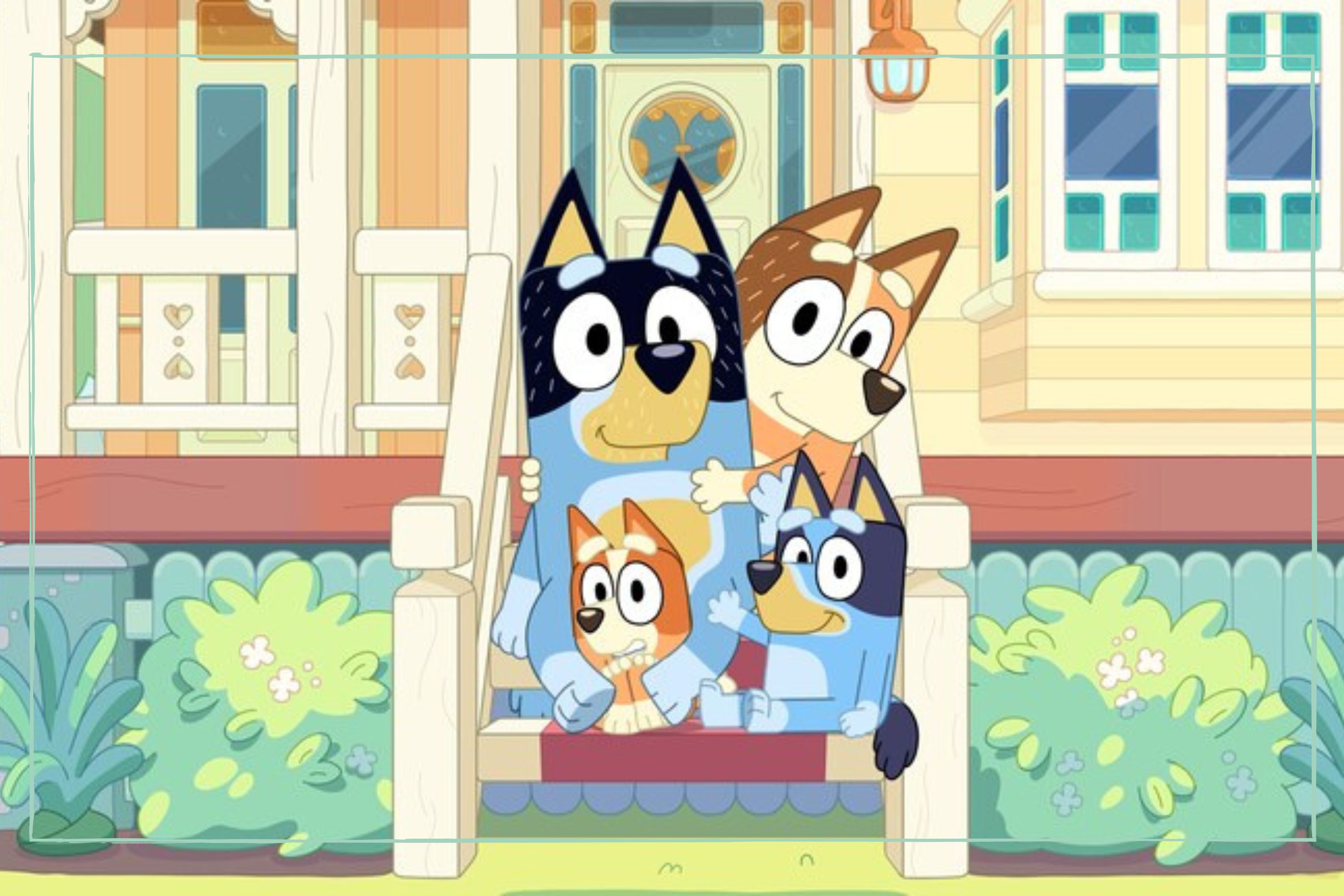 Is Brandy pregnant? Bluey fans think the Heelers could be about to welcome a new cousin following the season 3 finale
Is Brandy pregnant? Bluey fans think the Heelers could be about to welcome a new cousin following the season 3 finaleEagle-eyed Bluey viewers are wondering if Aunt Brandy is pregnant, following a touching moment in the season three finale.
By Ellie Hutchings
-
 Is Bluey ending? What we know about the rumours around the kids' cartoon, as the Heelers put their house up for sale
Is Bluey ending? What we know about the rumours around the kids' cartoon, as the Heelers put their house up for saleBluey's producer has shared an update on the show's future
By Ellie Hutchings
-
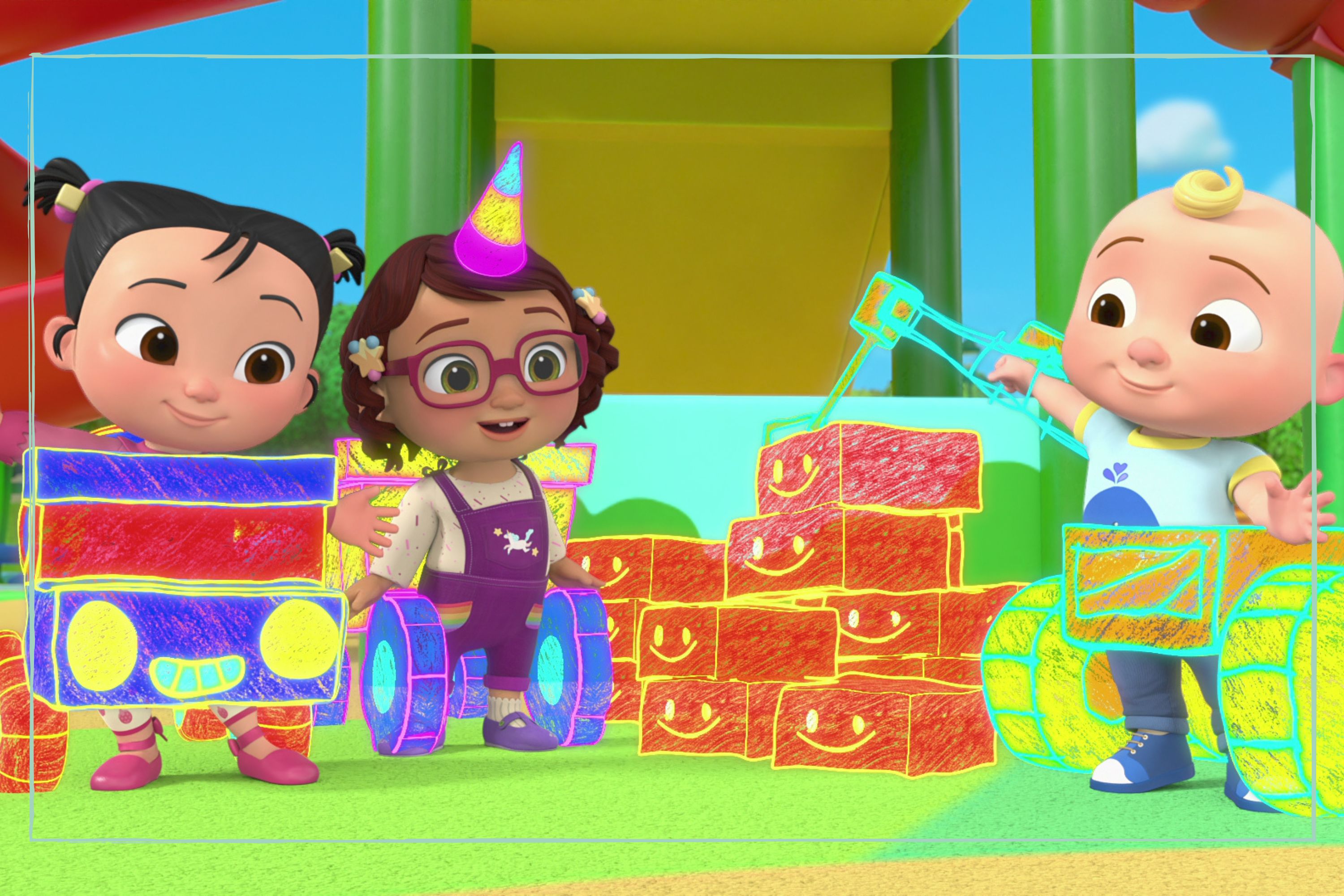 CoComelon has been accused of being 'overstimulating' - the experts explain why it's ok to let your kid watch the popular cartoon
CoComelon has been accused of being 'overstimulating' - the experts explain why it's ok to let your kid watch the popular cartoonCoComelon is adored by kids around the world, but some experts have shared reasons they don't think children should be watching - we look at both sides of the argument.
By Lucy Wigley
